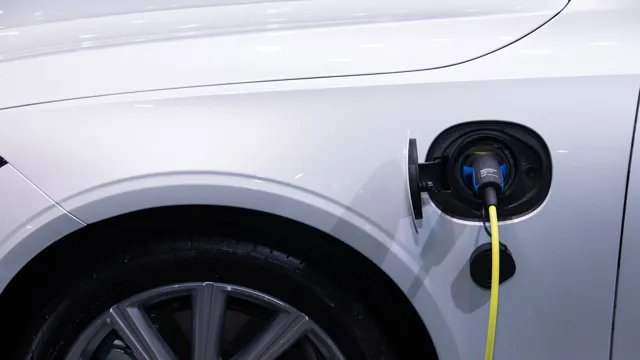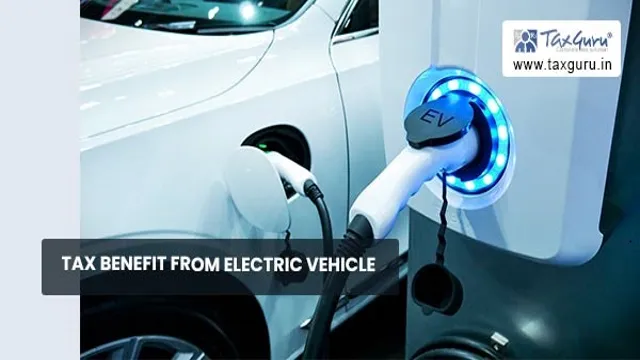Rev Up Your Savings with P11D Benefits on Electric Cars: A Complete Guide
Have you considered an electric car as your company vehicle but aren’t sure about the associated P11D benefit? As the world moves towards a greener future, electric cars are becoming more and more popular – and for good reason. They’re environmentally friendly, quiet, and cost-effective when it comes to fuel and maintenance. However, there’s one aspect that many people aren’t aware of: P11D benefit.
In this blog, we’ll discuss what P11D benefit is, why it’s important, and how it applies to electric cars. So buckle up and let’s dive in!
Understanding P11D Benefit
If you’re considering an electric car for your company, it’s worth understanding what P11D Benefit is and how it applies to electric vehicles. Essentially, P11D Benefit is a tax on the benefits and perks an employee receives from their job. For company cars, this applies to the car’s value, including any additional features or upgrades.
However, for electric cars, there’s a significant advantage. The P11D Benefit for electric cars is currently 0%, meaning that as long as the car’s list price falls under a certain threshold, there’s no tax to pay. This makes electric cars a far more attractive option for businesses, as it helps to offset the higher initial cost of purchasing an electric vehicle.
Furthermore, electric cars have significantly lower running costs, so they could save you money in the long run. So, not only are electric cars good for the environment, but they could also be a sensible financial choice for your business.
Definition and Calculation
P11D Benefit As an employee, you may receive more than just your salary from your employer in the form of benefits, like a company car, private healthcare, or gym membership. The P11D form is used to report these kinds of expenses and benefits that are not included in your taxable income. The P11D benefit is determined by calculating the cash equivalent of the benefit received based on its value and the amount of time it was used.
This value is added to your taxable income and may affect the amount of tax you owe. For example, if you receive a company car worth £20,000 per year and use it for personal use, the P11D benefit will be calculated by taking a percentage of the car’s value and adding it to your taxable income. It’s important to understand the value of the benefits you receive, as well as the potential tax implications that come along with them.

How P11D Benefit is Calculated for Electric Cars
P11D benefit, Electric cars. If you are an employee who has been provided with an electric company car, you may be wondering how the P11D benefit is calculated. The P11D benefit is the taxable value of benefits that an employee receives from their employer.
In the case of an electric company car, the P11D benefit is calculated based on the list price of the vehicle and its CO2 emissions, which are zero in the case of an electric car. Therefore, the P11D value for an electric company car is usually much lower than that for a petrol or diesel car with similar list price. This means that the taxable benefit for the employee is also lower, resulting in less income tax and National Insurance contributions being deducted from their pay.
It’s important to note that if the employer also provides charging facilities for the electric car, the cost of this provision may also be subject to the P11D benefit calculation. Overall, understanding how the P11D benefit is calculated for electric cars can help both employees and employers make informed decisions about the benefits of adopting greener vehicles.
Tax Benefits of Electric Cars
The UK government has pledged to cut down on its carbon emissions drastically, and one way it’s doing this is by promoting the use of electric cars. This has led to some impressive tax benefits for drivers who own electric vehicles. One major advantage is the p11d benefit, which is calculated based on the cost of the car, its CO2 emissions, and the type of fuel it uses.
Electric cars produce zero emissions, so they have the lowest p11d benefit, meaning employees could save thousands on their annual tax bill. Additionally, company car drivers that use electric cars for their work are exempt from paying any company car tax because they emit zero CO2 emissions. This means that switching to an electric car could be an excellent option for anyone looking to save money on taxes while also helping the environment.
Lower Benefit-in-kind (BIK) Tax Rates
One of the biggest benefits of owning an electric car is the lower benefit-in-kind tax rates. This is a tax levied on company cars and is calculated based on the vehicle’s list price, CO2 emissions, and fuel type. With many electric cars emitting zero emissions, they are often at the lower end of the BIK scale, resulting in lower tax bills for drivers.
This is great news for businesses looking to incentivize their employees to switch to electric cars. Additionally, the lower BIK tax rates help reduce the overall cost of owning an electric car. It’s a win-win situation – drivers save money on taxes, and the environment benefits from decreased emissions.
So, if you’re looking for a tax-efficient way of owning a car, electric vehicles are an excellent choice!
Electric Cars and Capital Allowances
When it comes to owning a car, you want to ensure that it’s reliable, efficient, and cost-effective. Today, electric cars have become an increasingly popular choice for people who prioritize sustainability and affordability. One of the many benefits of owning an electric car is the tax incentives available to you in the form of capital allowances.
As a business owner, you are entitled to claim capital allowances on any qualifying electric cars you purchase. This means that you can claim tax relief on the upfront cost of the car over time. Additionally, electric cars come with lower CO2 emissions, making them an eco-friendly and cost-effective solution.
By driving an electric car, you not only help reduce your carbon footprint, but you also save money on taxes and fuel costs. So, invest in an electric car today and reap the rewards!
National Insurance Contributions for Electric Cars
Electric cars offer numerous benefits, including tax benefits that make them even more attractive to potential buyers. One of the key benefits of owning an electric car is lower National Insurance Contributions (NICs). In the UK, NICs are a mandatory payment that an employer and employee make towards the National Insurance scheme, which helps support state benefits.
When it comes to electric cars, both the employer and employee enjoy lower NICs, making it an excellent option for companies looking to invest in eco-friendly vehicles. The rates of NICs depend on the type of vehicle and emissions levels, with electric cars typically being taxed at a lower rate compared to traditional petrol and diesel vehicles. This tax benefit, combined with other incentives, such as reduced road tax and lower fuel costs, makes electric cars a smart and financially savvy choice.
Investing in an electric car can save both the employer and employee money and contribute to a cleaner, greener future for all.
Factors to Consider When Choosing an Electric Car
When considering purchasing an electric car, one factor to keep in mind is the P11D benefit. This is the amount of money that the driver will pay in additional taxes due to receiving a company car. Electric cars generally have a lower P11D value than their petrol or diesel counterparts, which makes them a more appealing option for both employers and employees.
In addition to the financial benefits, electric cars are also better for the environment, as they produce zero emissions and reduce carbon footprints. Other factors to consider when choosing an electric car include range, charging infrastructure, available incentives, and overall cost of ownership. By weighing these factors and doing the necessary research, you can make an informed decision when choosing an electric car that fits your needs and lifestyle.
Battery Range and Charging Time
When it comes to choosing an electric car, battery range and charging time are two crucial factors that you should consider. The battery range is the distance a car can travel on a single charge, and it varies depending on the car model and battery capacity. It’s essential to choose one with a longer range that can meet your daily driving needs without the need for frequent recharging.
On the other hand, charging time is the amount of time it takes to charge the battery from empty to full. The time also varies depending on the car model and charging method used. While some cars can charge fully in as little as 30 minutes, others may take several hours.
It’s worth considering which charging options are available to you, whether you can install a home charger or use public charging stations. Overall, the combination of battery range and charging time will affect the convenience and practicality of your electric car.
Purchase Price and Running Costs
When looking to purchase an electric car, the initial cost is likely to be higher compared to a traditional gasoline vehicle. However, it’s important to consider the long-term benefits and running costs. With electric cars’ increasing popularity, the prices of batteries and other components have fallen considerably in recent years, making them more affordable.
Additionally, electric cars generally require less maintenance and have a lower cost of operation due to the reduced need for oil changes and less wear on parts like brakes and transmissions. Furthermore, since electric cars run on electricity, they have substantially lower fuel costs compared to traditional cars. By choosing an electric car, you can save money in the long run while still enjoying a smooth, efficient ride.
Conclusion
In conclusion, opting for an electric car as your company vehicle can be a wise and financially beneficial decision, especially when considering the P11D benefit. Not only will you save money on tax, but you’ll also be doing your part in reducing carbon emissions and helping to create a cleaner, greener future for us all. So, go ahead and make the switch – your wallet, and the planet, will thank you!”
FAQs
What is a P11D benefit?
A P11D benefit is a taxable benefit that an employee receives from their employer, which is not included in their salary.
What is a P11D benefit on electric cars?
A P11D benefit on electric cars is a taxable benefit that an employee receives from their employer if they are provided with a company electric car for private use.
How is the P11D benefit on electric cars calculated?
The P11D benefit on electric cars is calculated by multiplying the car’s list price by the percentage of its CO2 emissions, and then the employee is taxed on that amount.
Is there a reduced P11D benefit on electric cars?
Yes, there is a reduced P11D benefit on electric cars as they have lower CO2 emissions compared to petrol or diesel cars, which means the percentage of the list price that is taxable is lower.


